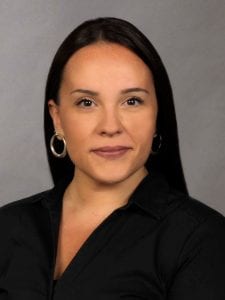International Conference Offers Insights and Networking Opportunities

By SARA BELLIGONI
In early November, Sara Belligoni, a Security Studies doctorate student,presented her research paper at the Inter-University Seminar on Armed Forces and Society (IUS-AFS) international conference in Reston, Va.
The conference is organized every other year in the U.S. and represents an excellent forum of discussion for scholars and professionals involved in the fields of security, military affairs and civil-military relations. With more than 50 panels and 250 participants representing 25 countries, the conference explores relevant topics ranging from the involvement of military actors in humanitarian operations to the military’s role in fostering democratic institutions, from the challenges in the contemporary world order for the North Atlantic Treaty Organization (NATO) to the gender issues still generating debate about women’s inclusion in the armed forces.
Belligoni describes the conference as a unique opportunity for a graduate student to engage in meaningful discussions with people involved in the field of security studies. She adds that the outstanding quality of the research papers and presenters were a great opportunity for participants to receive and provide valuable feedback.
“The added value of this conference is in the presence of attendees coming from different countries, disciplines, and background. This makes possible to bring different perspectives on the same issue, which is crucial when addressing transnational topics in security studies,” Belligoni said.
Belligoni presented her research paper titled “Overcoming the Mistrust: Strengthening Civil-Military Humanitarian Coordination When Responding to Complex Emergencies” within the Peacekeeping and Humanitarian Assistance panel. The paper addresses the fragile context of complex emergencies and how it challenges the coordination among civilian and military actors involved in emergency response operations.
From the standpoint of the United Nations (UN), Belligoni stresses “the importance of scientifically analyzing current practices of coordination between UN, UN Peacekeepers, and foreign armed forces, with the ultimate goal of detecting weaknesses and suggesting a path for policymakers.”
She also underlines the importance of a multi-disciplinary approach to the topic of civil-military humanitarian coordination to provide the literature with a comprehensive discussion of the variety of missions in which armed forces are nowadays involved at the international level.
In addition to the three days of panels, the IUS-AFS conference provided great networking opportunities for participants.
“Getting together during the coffee breaks, receptions, and dinner is a great opportunity to get in touch with other people that work in your field, which can ultimately result in collaborations and professional growth,” Belligoni said.
Participants had the chance to hear from outstanding speakers, including the president and chair of IUS-AFS, James Burk, from Texas A&M University and Robert A. Vitas, from the Lithuanian Research and Studies Center, executive director of IUS-AFS. During Friday’s banquet, Michael C. Desch addressed the audience with a keynote speech focused on the importance of bridging the gap between social science and policy making.
